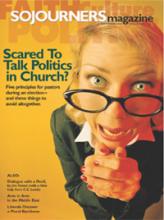North Carolinians take pride in their "First in Flight" license plates. Now they can claim another first—the first Truth and Reconciliation Commission in the United States.
Twenty-five years after Ku Klux Klan and American Nazi Party members killed five labor activists in a march for workers’ rights, the Greensboro community is calling for truth from the perpetrators and the victims. Despite local news crews filming the murders, all-white juries acquitted the men who pulled the triggers and plunged Greensboro into years of traumatized silence. In June, the six commissioners were officially seated. Five are local community leaders and the sixth is executive director of the Fellowship of Reconciliation. The commissioners were trained by the International Center for Transitional Justice, which draws its methods from the South African Truth and Reconciliation Commission. Unlike its South African counterpart, the Greensboro commission was not initiated by the government, but by the community.
"Fundamental to faith is the truth—a truth that liberates us from the bondage of falsehood," Rev. Nelson Johnson, a veteran civil rights activist who was an organizer at the 1979 rally, told Sojourners. "But truth, with all its bitterness and dark sides, needs to have with it healing and reconciliation. It is the reconciliation that transforms the truth.We often believe we can be reconciled without knowing what we really need to be reconciled about. The truth process in Greensboro will open up a way for our community to heal and model a way for other communities, who can adapt it to their particular situation."
Read the Full Article
